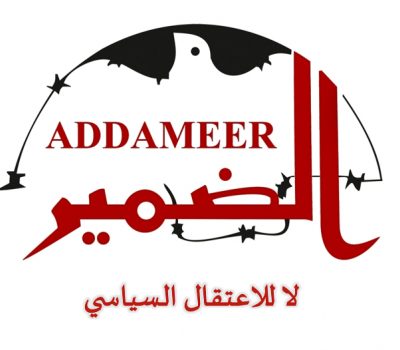
Date of birth: 2/8/1989
Education: Diploma in design from Hijjawi College; currently a student at Al-Quds Open University
Arrest:
The detainee’s father reported that occupation forces raided the new Askar refugee camp and raided the family home on 12/1/2015. The IOF arrested Yaseen after ransacking the house and destroying some of the furniture. Two weeks after Yaseen’s arrest, the IOF returned to his family’s home, bombed the main door, searched the house and destroyed some of the family’s belongings. The IOF searched the house for an hour and a half and then left.
Previous arrests:
The IOF arrested Yaseen Abu Lafah a number of times. The first arrest took place when he was 16 where he was subjected to a 60-day interrogation and received a list of charges. The second was in 2013 in which he spent 7 months under administrative detention; he was arrested at a checkpoint near Nablus on 2/6/2013 and received a 4 month administrative detention order, and the order was renewed for an additional three months. During this time Yaseen Abu Lafat went on an open hunger strike for 18 days in protest of administrative detention and in solidarity with other prisoners. He was released in February 2014.
A cartoonist and activist in prisoners’ issues
Yaseen’s drawings became well-known when administrative detainees launched an open hunger strike in protest of administrative detention policy in April 2014. The hunger strike lasted for 63 days. Yaseen Abu Lafah was one of the young activists that supported the hunger strike by creating illustrations and designs on the prisoners’ issue and their suffering. Abu Lafah participated in solidarity tents in various areas of the West Bank. His participation resulted in his arrest and interrogation for two days by Palestinian Authority security forces.
Legal status:
An administrative detention order was issued against Yaseen Abu Lafah on 26/1/2015 in Ofer Military Court. The court based the order on a secret file that neither Abu Lafah nor his lawyer were able to view.
During the hearing, the prosecution stated that the detainee is an activist affiliated with Islamic Jihad (“illegal organization” according to their claims), that he is a well known member in Nablus, and that he is affiliated with other activities that aim to improve the position of Islamic Jihad in Hebron. The prosecution added that Abu Lafah’s activities with the organization support terrorism and that these actions took place after he was released.
Abu Lafah’s lawyer stated that the detainee does not pose any danger and that he was not accused of any military actions or anything of the sort, indicating that the prosecution’s claims are false. The military judge adopted the view point of the military prosecution and confirmed the administrative detention order, claiming that the detainee poses a threat and that after reviewing the secret file he was convinced of the claims. The detainee was denied his right to defend himself and knowledge of the accusations. In addition, no genuine investigation confirms the claims of the prosecution.
The prosecution and the judge presented the public accusations without mentioning any details of times and places. This highlights the complicity between the military jurisdiction, the intelligence forces and the military command of the occupation authority, and their arbitrary practice of administrative detention policy when they are unable to provide a list of charges against detainees, in violation of article 78 of the fourth Geneva convention.
A message from Yaseen’s family:
Yaseen’s family has stated:
“Administrative detention is a war of nerves that is used by the occupation forces against activists based on what is called a “secret file”, meaning there are no charges or trials. It is an unjust arbitrary decision that aims to destroy any actions of solidarity with the prisoners’ issue, and to separate Palestinian families and deny them from seeing their family members. Yaseen worked through his designs and illustrations to introduce the prisoners’ issue to the world; his designs express the reality of Palestinian prisoners and their suffering, especially coming from a person that lived and suffered detention. Yaseen doesn’t know when he will be released or when he will go back to prison. His continuous arrests have created a huge obstacle to his education. His most recent arrest came in the same period of his exams which made him question whether or not he should continue his education. He also questions whether or not he should get married.”